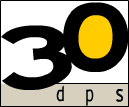Everyone’s an Editor Sometimes: 6 Tips to Help You When It’s Your Turn
While “editor” may not be a part of your job title, everyone is asked to review another person’s work at some point. It might be your employee, your peer, or (eeck!) your boss, but somebody is going to request that you, “give this a quick read.”
When it’s your turn to wield the mighty red pen, keep the following in mind.
- Don’t use a red pen! Blue or black will work just fine and feel less aggressive—especially if there are lots of corrections.
- Make multiple passes, starting with the basics. There are many aspects to good writing, from basic elements like spelling and punctuation, to more complex things like tone and flow. It’s hard to assess all of them in one pass. At its simplest, a document should at least be free of spelling errors and incorrect punctuation. Do an initial review searching for those things, then make subsequent passes to evaluate the piece on other criteria.
- Confirm names, statistics, and other facts. It’s natural to assume that if a writer uses a name, it is spelled correctly, or if they cite a statistic, the correct number is used. But the reality is, people don’t always double-check those types of things before submitting their work for review. Unless you know that they’ve done their “due diligence,” you should confirm those kinds of items if you can.
- Edit in one, distraction-free sitting. Editing is one of those tasks that requires fairly intense focus. If possible, find a place that is relatively quiet and where you can work uninterrupted and undistracted. If the time is available and the length of the piece allows for it, it’s also best to do your editing in one sitting. Part of your job as editor is to assess the flow of a document, and that’s hard to do if you are reviewing the material piecemeal—a few minutes here and a few minutes there.
- Don’t forget the big picture. When you’re hunting for little things like missing commas and its vs it’s, it is easy to forget that the document was written with a purpose in mind. Be sure you know, from the author, what that purpose is and then give some consideration to whether you feel it has been achieved.
- Be sensitive to relationships. Some people might argue that you should edit a document as if you don’t know who the author is. But, you do! The longtime coworker who is known for her thick skin might have no problem with you ripping her document to shreds. Your new, soft-spoken subordinate might be devastated by the same treatment. Be aware that there is an art to providing constructive criticism.
It’s always best to get a second set of eyes on a document before it is released. Need an expert opinion on your content marketing materials? We’ve been helping companies in Colorado Springs and around the country produce stellar work for more than two decades.



